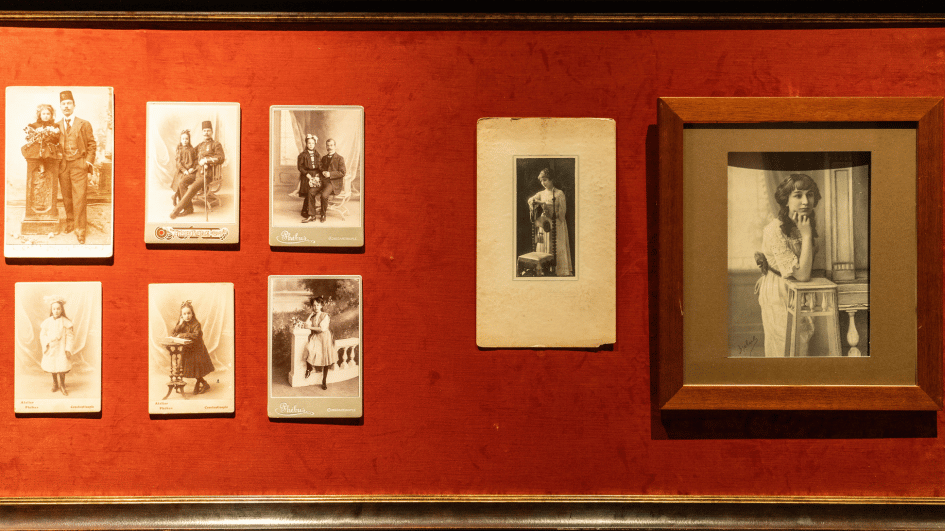The art of Melek Celâl at SSM
ISTANBUL

The Sabancı University Sakıp Sabancı Museum (SSM) continues its series of monographic exhibitions, offering an in-depth exploration of significant artists and their contributions to Turkish painting.
“A Forgotten Woman of the Republic: The Many Ways of Melek Celâl” focuses on a pioneering female artist of the late Ottoman Empire and the early Turkish Republic. It can be visited at the SSM through April 28, 2024.
The exhibition is centered around the life and art of Melek Celâl, the first female artist to show nude works at the Galatasaray Exhibition in 1924, as well as the first woman to open a solo exhibition in 1935. Featuring a diverse array of the artist's paintings and sketches; as well as patterns inspired by Anatolian motifs; articles on urban planning, calligraphy, and Turkish embroideries, the exhibition also features a rich archive, including photographs, postcards, memoirs, and letters providing a comprehensive view of Celâl’s life.
Celâl stands out as a trailblazing female representative of the first generation of modern artists, born in the late nineteenth century in the Ottoman Empire and continuing their lives in the newly established Republic of Türkiye. As well as presenting an in-depth exploration of her life and works, the exhibition also delves into ways in which modernization was experienced in a nation undergoing radical change.
The scientific research project titled “Melek Celâl: Beyond Vision” is also featured in the exhibition, shedding light on her artistic technique, the restoration processes her works have undergone, and the structure, color, paint layers, and texture of the materials that she used.
“Regrettably, Melek Celâl, a versatile individual born into a prestigious family, navigating the transition from the Ottoman Empire to the Republic of Türkiye, has been overlooked in contemporary narratives of the Republic. In commemorating Melek Celâl, a true embodiment of Republic ideals, we see it as our responsibility to revisit this pivotal epoch in Turkish history and its aspirations on the occasion of the Republic's centenary,” Director of the Sakıp Sabancı Museum,” Nazan Ölçer said.
Celâl, raised in an educated and affluent family, received an exceptional education within the confines of her home. Although her name doesn’t appear in the official records of the School of Fine Arts for Women and the Académie Julian, it is likely that she attended these institutions as a guest student and continued her education by attending the studios run by prominent artists during her frequent travels to Paris.
Residing in Moda and establishing her own studio, she played an active role in the cultural and artistic milieu of Istanbul, hosting numerous artists and intellectuals of her time at her house, Villa Wohl.
Beyond her work as a painter and sculptor, Celâl was also an accomplished writer and critic. Her articles and books on traditional Turkish arts and calligraphy, coupled with her talks on the subjects, are as noteworthy as her identity as an artist.
She stands as a representative of the Republic, gazing towards the West, while maintaining a strong connection to Anatolia.
















